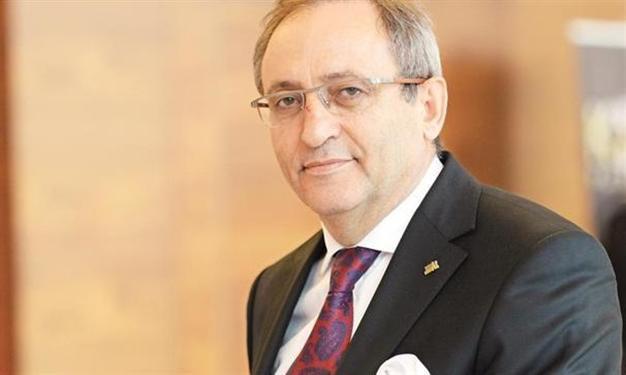TANAP to create 15,000 jobs: SOCAR Turkey CEO
ISTANBUL - Anadolu Agency

Socar Turkey CEO Kenan Yavuz
The Trans-Anatolian Natural Gas Pipeline (TANAP) will create more than 15,000 new jobs and make a great economic contribution to the participating countries, according to the State Oil Company of Azerbaijan (Socar), which is conducting the project.“Pipelines and upstream investment made for the Shah Deniz Stage 2 Gas Field Development have a great potential to create new employment and business opportunities. We expect the TANAP project to create new jobs for at least 15,000 people directly or indirectly during the investment period. We also expect significant transportation revenue for its shareholders and tax revenue for the country during the operational period. It is also worth mentioning the spinoff effects of these investments on the economies of the countries involved in this value chain,” Socar Turkey CEO Kenan Yavuz said in an interview with Anadolu Agency.
Yavuz said the TANAP parties had already signed gas transportation agreements for 16 billion cubic meters annual transportation capacity for 15 years with a fixed tariff.
“Turkey has become a part of the TANAP project, not only as a shipper, but also a major investor with a 30 percent stake. By doing that, Turkey has already made its decision. Turkey supports the Turkish Stream Project with Russia as a cure for the gas shortages it faces almost every year in its West Line due to the conflict between the Russian Federation and its transit country, Ukraine,” he said.
Yavuz said Turkey hopes to offtake an equivalent amount of gas or a bit more from the Turkish Stream unless it otherwise offtakes from the West Line.
“The Turkish Stream can only be a rival to TANAP when we consider a capacity expansion in TANAP. In the long run, if capacity expansion takes place, the investment decisions of potential upstream and midstream players will be shaped up by the level of price competition to be created between the two supply chains. Shippers aiming to reach their customers in Turkish and European gas markets through TANAP or Turkish Stream will be willing to obtain the most competitive prices and therefore force both upstream and midstream players to reduce their costs. No matter what, TANAP is the only project which brings not only route but also supply diversity for European end users. In this respect, it is not difficult to say that it has no rivals,” he said.
The pipeline traverses 20 provinces, 67 districts and nearly 600 villages with different social and demographic characteristics, and almost 60 percent of the pipeline will have to be laid in hilly to mountainous terrain, said Yavuz.
“The first 600 kilometers from east to west is at a 2,000-meter altitude on average. In certain sections of the pipeline, the season for route construction is limited to only 110 days, and we have only three construction seasons to build the pipeline. The 56-inch diameter pipes to be used in construction are approximately 12-13 meters in length and 8.5 to 9 tons in weight, factors which bring additional logistic and constructability problems,” he said.
The initial capacity of TANAP is expected to be 16 billion cubic meters (bcm) of gas from Azerbaijan’s Shah Deniz II field in the Caspian Sea, one of the world’s largest gas fields developed by a BP-led consortium per year, and will be gradually increased to 31 bcm. Around 6 bcm of gas will be delivered to Turkey, while the remainder will be supplied to Europe.
















